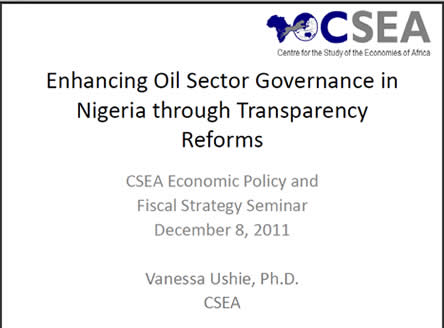Author:Vanessa Ushie
Publication Date:December, 2011
Document Size:23pages
Why Oil Sector Transparency?
- Corruption negatively affects growth. Overriding logic of unproductive rent-seeking in Nigerias political economy
- Transparency reforms needed to shore up the credibility of the oil sector, and enhance productivity and efficiency
- Greater oil sector transparency will support the governments push towards structural reforms and inclusive growth

